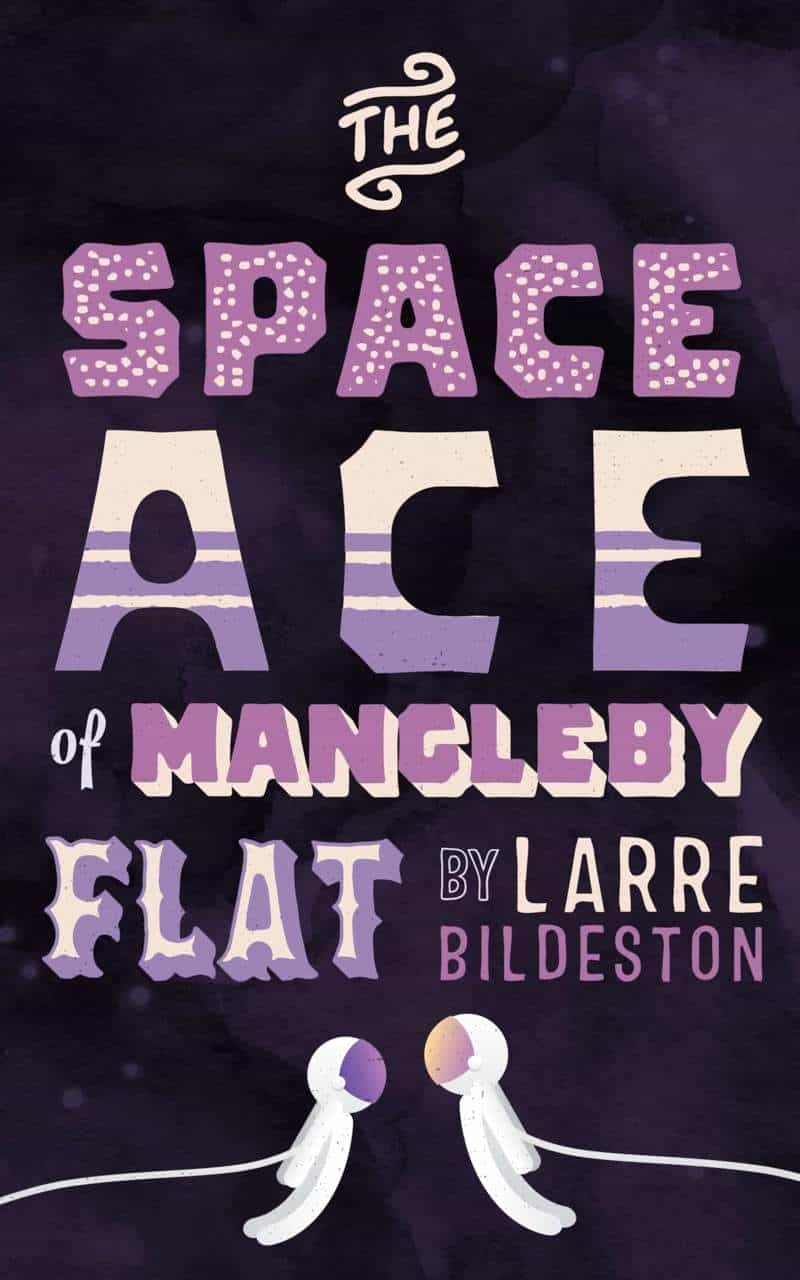“The Princess” by Alfred Tennyson (1847) is a long narrative poem. Like many misogynist authors, Tennyson presents it as comedy. Well, technically this is ‘serio-comic’, or ‘comedy drama’. The best way to perpetuate stereotypes and cement social hierarchy is through ‘jokes’.
When Tennyson wrote “The Princess”, Queen’s College in London had recently been founded. This was Britain’s first college for women. In Tennyson’s narrative, a princess runs away to a utopian wilderness and founds a college only for women, NO MEN ALLOWED. I’ll leave it to you to decide just how misogynistic this entire story is.
I’m going to spoil the end for you right now: Princess Ida, who contemporary readers will likely decode as Sapphic or aroace, is ultimately ‘tamed’ by falling in love with the prince who saves her from drowning after she flies into a rage and falls off a bridge into a lake. Other things happen too.
If you’re so inclined, read the entire boring thing. “The Princess” by Lord Tennyson is well out of copyright and freely available at Project Gutenberg.
If you’d rather listen to it, the Snoozecast podcast recites the opening to “The Princess” knowing that’s all their audience needs before nodding right off. As you may have deduced, this podcast aims to send listeners to sleep.
I don’t especially want to read it myself.
But this is an influential poem. W.S. Gilbert (of Gilbert & Sullivan) based operetta “Princess Ida” (1884) on Tennyson’s “The Princess”. That puts 37 years between them.
In turn, my favourite short story author Alice Munro alluded to Gilbert & Sullivan’s “Princess Ida” and included a story with the same title in Lives of Girls and Women (1972). To understand a story by Alice Munro, I’d better familiarise myself with its palimpsestic works. Alice Munro’s “Princess Ida” comes 88 years after Gilbert & Sullivan’s.
What follows is my skeptical take on Lord Tennyson’s original… masterpiece. Imagine many interspersed sighs. Honestly, the plot is a bit hard to follow and this is what I think happens.
WHAT HAPPENS IN TENNYSON’S “THE PRINCESS”
THE WRAPPER STORY
The format is a story-within-a-story. The wrapper story positions the ‘main’ story as part of a storytelling game at a summer fete. The narrative of the princess who refuses to marry a man is interspersed with weird songs which don’t seem all that related. (Women’s voices sing the songs, which at times sound a bit like… lullabies?) The story-within-the-story is told by the prince, first person narration.
Lord Tennyson clearly knew how this story would be received. He tries to get ahead of criticism using this wrapper story, with characters who are closer to the real audience by being audience members themselves. If you’re a misogynist man who’d like to write a misogynist story, it’s always a good idea to tell the misogynist story via an intradiegetic know-it-all male narrator. Washington Irving did it in Rip Van Winkle. Roald Dahl did it in Mrs Bixby and the Colonel’s Coat.
So, in this one, the conclusion of the wrapper story will show a man asking the narrator if the story might be better had Ida not ‘yielded’. The fictional women at the fete hate banter and ‘wish for something real’ (‘a gallant fight, a noble princess’).
The fictional audience of Tennyson’s story ultimately break into two cliques, those who prefer their stories to ‘mock’ (the mockers) and those who like realism (the realists). The storyteller proclaims that he can hardly please both of them, can he.
Except for the fictional audience member, little Lilia, who thinks it’s a grand story. Clearly, Tennyson would prefer we make like little Lilia, fictional tool of the patriarchy in training. The storyteller also expresses his (Tennyson’s) opinion (no doubt) that the truest stories come out of fantasy. This is a very helpful notion when your grand self-image is based on nothing more than privilege without substance.
Eventually the party will go back to the Abbey. Night descends, the bats come out, owls whoop. It’s all very Hallowe’en.
So that’s the wrapper story. Let’s take a look at what happens in the fairytale within, featuring misandrist Princess Ida.
THE SET UP
- In line with nobility, a prince doesn’t get to choose who he marries. His future wife was decided when the wife was eight years old. This was par for the course back then. Monied people married other monied people.
- Ergo, the princess also comes from a noble olive farming family. Ida’s father promised his daughter to the prince the year the olives failed. (The princess’s father is a baron. I guess he needs a farming income.)
- By the way, Ida’s father is called King Gama.
- Lucky for the prince, “princess next door” turns into a tall and beautiful young woman when she hits puberty. Princess Ida is accomplished, too! So far, so good!
- Wait, what. She’s run away to the wild? She’s founded a university of maidens? At a remote retreat in the South?!
bright and fierce and fickle is the South,
“The Princess” by Alfred, Lord Tennyson
And dark and true and tender is the North.

- Sounds kinda suspiciously like Sapphics on Lesbos, don’t you think? Why can’t men attend this female only “university”? This is reverse discrimination!
- Ida’s father, King Gama, is eventually obliged to explain to the king that his daughter refuses to have anything to do with men. So… that’s why she can’t marry your son. Soz.
- This Princess Ida, she’s fallen in with two Bad Women. Widows, both of them. Lady Blanche and Lady Psyche… neither of these biatches plans to remarry.
- They’re a bad influence on his rebel daughter.
- Together, they’ve decided that the only reason women are behind men is because of lack of access to knowledge. If women had the same access to education, they would easily be men’s equal.
the brain was like the hand, and grew
“The Princess” by Alfred, Lord Tennyson
With using; thence the man’s, if more was more;
He took advantage of his strength to be
First in the field: some ages had been lost;
But woman ripened earlier, and her life
Was longer; and albeit their glorious names
Were fewer, scattered stars

- So at this university, women are given the chance to learn everything a man gets to learn.
then we dipt in all
“The Princess” by Alfred, Lord Tennyson
That treats of whatsoever is, the state,
The total chronicles of man, the mind,
The morals, something of the frame, the rock,
The star, the bird, the fish, the shell, the flower,
Electric, chemic laws, and all the rest,
And whatsoever can be taught and known
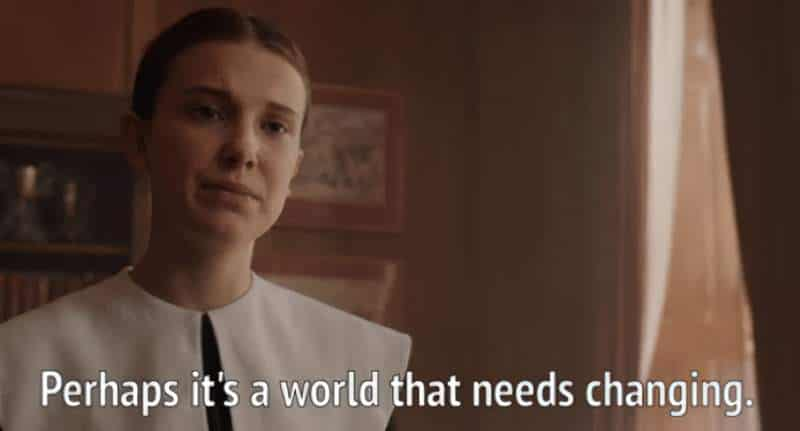
- What to do, what to do, when the object of your affection is more interested in learning than in you… a very eligible bachelor?
- Best friend Cyril is not impressed with the princess. I mean, what have women ever invented? Nothing. Men have built the entire world. Alone, without the help of a single woman evah.
‘They hunt old trails’ said Cyril ‘very well;
“The Princess” by Alfred, Lord Tennyson
But when did woman ever yet invent?’
- This prince could marry someone else, right? NO! He must have Princess Ida. Surely if she claps eyes on him she will finally understand that sex and procreation with men is great, actually. Also, what is even the point of being a misogynist if you can’t tame a powerful woman? The weak, submissive ones are no challenge at all.
- So the prince gathers his besties (with the wonderful names of Cyril and Florian). They’re going on a road trip. By horsey. Giddy up, horseys!
ROAD TRIP
- What’s the Big Plan? To infiltrate Ida’s so-called ‘university’! Where all the pigs are sows and all the dogs are bitches. (When they say no men, they really mean no men!)
- As well as women, Princess Ida has surrounded herself in “gay-furred” cats. Actually leopards. From now on, I’m calling leopards “gay-furred” cats. I’ve written to David Attenborough about it.
- These women are so keen to avoid the company of men there’s an inscription on the gate which makes things pretty clear: LET NO MAN ENTER IN ON PAIN OF DEATH.
- Fun fact: the princess has built an academic institution far more racially diverse than any male equivalent of the time, “with beauties every shade of brown and fair”.
THE PLAN
- How does one infiltrate a laydees only establishment? By dressing up as women, of course! Easy peasy. Especially for the prince, whose hair is golden ringlets already.
- Each dressed as women, the prince, Cyril and Florian rock up to the university and ask to enrol.
- First thing they want to know: “Which of our tutors is the prettiest and the best-natured?” Clearly these boys have no idea how to pretend to be women.
- Oh yes, Florian happens to be Lady Psyche’s brother. Small world, this one. Even smaller when you only hang out with other aristocrats.
- Surely, surely, Lady Psyche will listen to her brother, erm, sister. Sister Florian, and persuade her friend the princess that the princess really should marry.
MEETING WITH PRINCESS IDA
- Before classes begin proper, the new “female” students must first have a session with Princess Ida, founder. They change into Academic silks — coloured lilac and decorated with gold. (The Doctors wear violet hoods.)

- There’s one main rule: “cast and fling the tricks which make [women] toys of men”. This is the only way to become equal. (1970s political lesbians tried the same. Read more about that whole deal in chapter one of this book.)
- She’s pretty impressive, this Ida chick. The men get into a whole debate about women’s equality. Who better qualified to spew forth on that tiny topic than three privileged young men who’ve been gadding about in dresses for five whole minutes?
- The young men compare themselves to the Fates (who controlled the mother thread of life, from birth to death. Clotho spun the thread of life, Lachesis measured the thread allotted to each person, and Atropos was the cutter of the thread, choosing the moment of each person’s passing.) They wander around the grounds observing women having lots of relaxed fun, though they do also overhear some of the young women care nothing for learning. Well! Learning won’t help them to secure a husband.
SPRUNG! (SORT OF)
- But the men are visibly men. Lady Psyche and Lady Blanche work out who they are. Also, I guess Lady Psyche’s brother still looks like her brother, even in women’s clothing. Not that difficult, really. Unlike that movie where no one notices a four inch differential in height when a girl dresses as her twin brother for… reasons.
- Do the women tell Princess Ida about the subterfuge? No. Because Psyche and Blanche are frenemies, actually. (If only women could get along, the fight for equality would be won, right!?) Blanche wants to oust Psyche from the university.
WOMEN CAN’T BE TRUSTED TO BE HONEST ABOUT EACH OTHER, AMIRITE?
- Florian asks yet another woman (called Melissa) to explain to him what’s up between Lady Psyche and Blanche.
- The prince makes friends with Ida. They stroll around campus. Strangely, the topic of Ida’s marriage comes up. “But the prince really loves you! From afar!”
THE CHILDREN, THE CHILDREN! WHAT ABOUT THE CHILDREN?
- The prince asks, But what about children! Don’t you laydees want children?!
we like them well:
“The Princess” by Alfred, Lord Tennyson
But children die; and let me tell you, girl,
Howe’er you babble, great deeds cannot die;
They with the sun and moon renew their light
For ever, blessing those that look on them.
Nah. Kids. Not worth the whole birth and death hassle.
ROMANCE BLOSSOMS
- SHE LEANS ON HIM. TWICE!
- THEY TOUCH HANDS!
- THERE’S A PICNIC
- At this picnic, Ida asks the prince to sing a song
THINGS GO DOWNHILL
- Stupidly, the prince chooses a love song.
- Ida is unimpressed. Love is ridiculous. Romantic love stands in the way of gender equality. (Of course, no one had a concept of gender back then, let alone amatonormativity.)
- Why doesn’t he sing one about the women of his homeland instead?
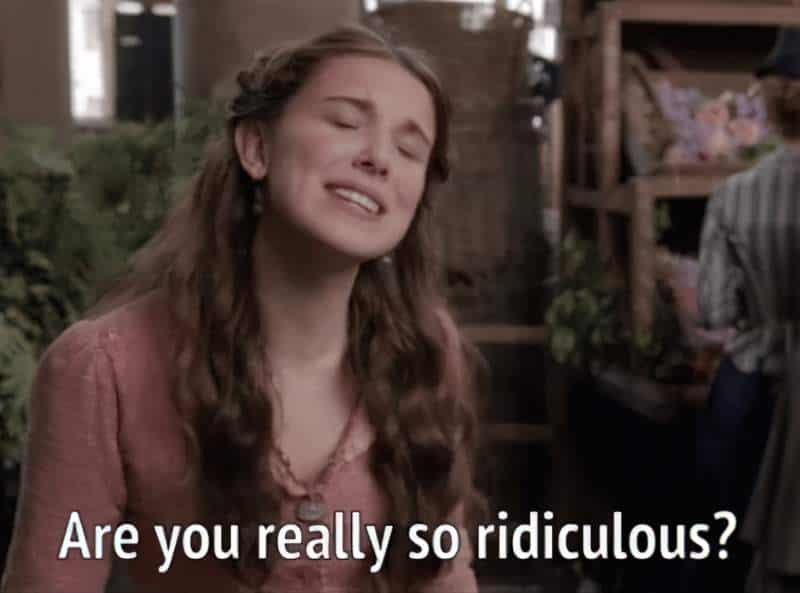
NOW THE MASKS REALLY COME OFF
- Whenever characters in a story wear some kind of ‘mask’ (in this case women’s clothing), the mask must come off at some point. That is a rule of transgression comedy. (Tootsie is a good, fairly modern example of the same.)
- How are they discovered? Cyril gets drunk, belts out a tavern song. In his man voice. Only men know tavern songs.

A NEAR DROWNING
- So anyway, Ida falls into the river? Somehow? Amidst the chaos?
For blind with rage she missed the [bridge] plank, and rolled
“The Princess” by Alfred, Lord Tennyson
In the river.
- This presents a golden opportunity. The prince can save her! So he does. (I’m starting to think she threw herself in the damn river, meaning to swim away.)
WHAT HAPPENS TO PSYCHE
- Cyril escapes with his sister, Psyche, though they do leave Psyche’s child behind. (Yes, yes, she does have a child. The girl, called Aglaïa, is “a double April old”. I wonder what would’ve happened if Aglaïa had been a boy… Maybe there was a boy once and the witches got rid of him?)
WHAT HAPPENS WITH THE PRINCE AND HIS DAD
- The prince escapes with Florian but they’re recaptured. (Did they even really mean to run away? The prince clearly likes a love challenge.)
- Meanwhile, some troubling news arrives via letter.
- Ida’s father went to see the prince’s father in person. (That’d be the king.) He tried to explain about his wayward daughter, but the king took him hostage (!?)
- Both the prisoner and the king send a letter to the university, to Ida.
- The king tells Ida to let his son go, or he’ll sic his army onto her. Also, free his son, dammit!
- While imprisoned, the prince declares his love for Ida even though she’s got him in prison. (I can’t see how declaring love would work… He’s dealing with an avowed aromantic in Ida.) Remember, castles had their own prisons back then. Well, dungeons. (The setting is mock-medieval.)
IDA STARTS TO FALL FOR THE PRINCE
- Ida maybe starts to fall for the prince. But she definitely does not want to marry him. But the prince isn’t entirely bad. He does agree with the princess that men and women each have their value.
- Unlike the prince’s father, who is a misogynist through and through. He tells his son as much:
Boy, when I hear you prate I almost think
That idiot legend credible. Look you, Sir!
Man is the hunter; woman is his game:
The sleek and shining creatures of the chase,
We hunt them for the beauty of their skins;
They love us for it, and we ride them down.Man for the field and woman for the hearth:
“The Princess” by Alfred, Lord Tennyson, king to prince (who is in love with harridan Princess Ida
Man for the sword and for the needle she:
Man with the head and woman with the heart:
Man to command and woman to obey;
All else confusion.
- Oh god, now the king is here with his army.
- No worries. Ida has an army OF STRONG WOMEN! She gives a speech to that effect.
- Upshot is, the prince and Florian are released.
PSYCHE’S REGRET
- Psyche’s having second thoughts about her own role in all of this. She’s lost her child for starters. That’s the main thing. She also betrayed her best friend Ida by keeping schtum about the infiltrating men dressed as women (one of them her brother).
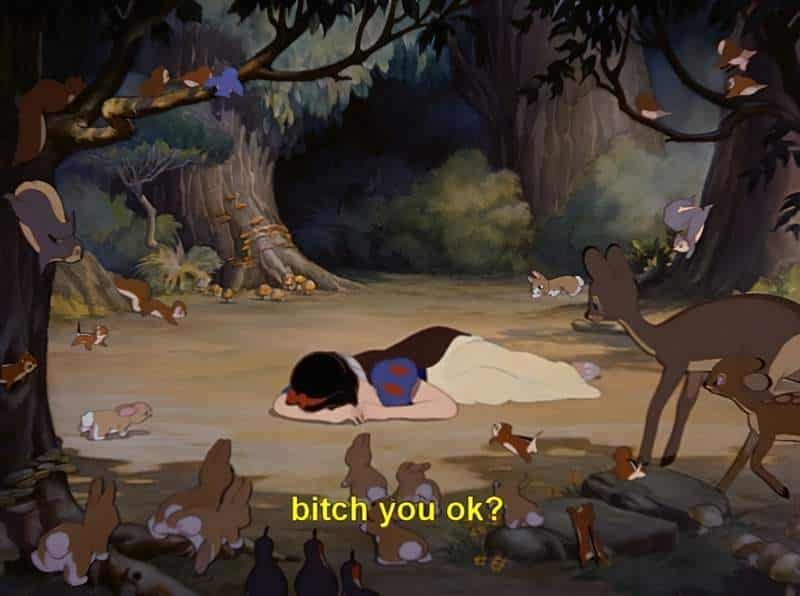
THE KING WANTS WAR
- The prince and his father are in disagreement. The king wants war. The prince wants Ida. Maybe Ida didn’t treat him so good, but he’s been getting along well with his future father-in-law, Gama, who must be still imprisoned (?) These guys are on the same page. Gama wants his daughter married to the prince; the prince also wants Gama’s daughter married to the prince. What more do these guys need in common?
- The men get together and decide Ida gets no say in whether she marries the prince or not. They’ll settle it with a battle between men. Since women are not worthy opponents, Ida’s brothers will have to do. (Yes, Ida has three “broad” brothers, two of them twins.)
- The king feels strongly that women are designed to give birth. A hard-headed woman can be broken in with marriage, much like a horse. Especially if she bears twins. That’ll really break her.
IDA’S BROTHERS
- One of Ida’s brothers is called Arac. He decides Ida should at least know about all of this. He sends her a letter.
- Ida goes on another rant about the harm this does to women. I mean? You can see her point, right?
- However, Ida knows her brothers will win. So, whatever.
IDA THE PRE-WOMAN MONSTER
- What’s Ida been up to at the university? Falling in love with Psyche’s child. This shows the audience that she is capable of love. Like Save the Cat, but for young harridans. Except right now? She’s an unfeminine monster.
- Note that Ida is depicted as a mythological monster woman who steals the children of other women (in this case because she refuses to go to bed with a man). Such female monsters can be found in mythology from around the world. In Ancient Greek mythology we have Lamia, who not only kidnapped children but also ate them. Like Princess Ida, Lamia is beautiful and attracts the attention of the king (of the Olympians).
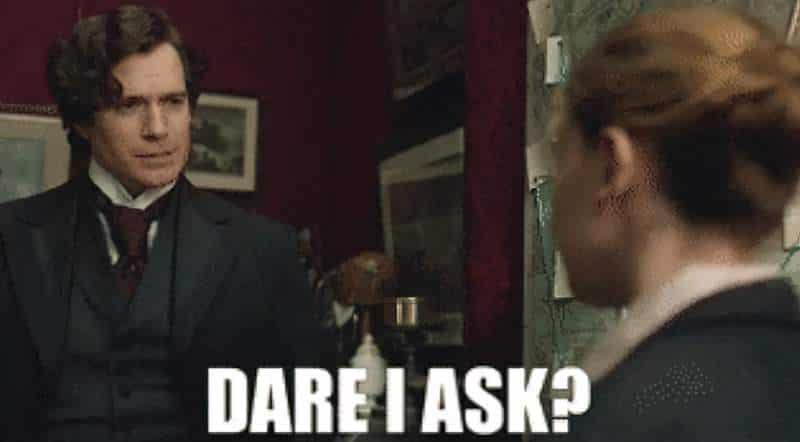
IDA’S BROTHERS WIN THE BATTLE
- Sure enough, Ida was right about the battle. Her brothers do win. She watches from the rooftops, singing, cradling Aglaïa in her arms. “Our enemies have fallen, have fallen…!”
- Afterwards, almost dead, the prince accepts defeat. But he feels Ida should give Psyche her child back.
- He gets these words out, then falls into a coma. Psyche wants to tend to the prince’s injuries. Remember how she has fallen in love with him a little, just doesn’t want to marry him?
- But then Ida goes off on one. Psyche betrayed her. Why should she give the kid back?
WIMMIN ARE ALWAYS CHANGING THEIR MINDS, AMIRITE?!
- The king changes his mind about his future daughter-in-law. Ida is one hard biatch. Ida does not have the temperament to tend to his son’s wounds. Leave his little prince boy alone!
Brace yourselves. Here comes Ida’s softening.
You shall not lie in the tents but here,
Ida, after the battle
And nursed by those for whom you fought, and served
With female hands and hospitality.
- Ida is worried about the injured prince. She remembers how he saved her life once. And now her brothers have basically murdered him for it!
- Also, can the other ladies please tend to Cyril and Florian, also injured?
- After doing a womanly thing, nursing wounded men, these hard ladies become more… womanly.
Her iron will was broken in her mind;
“The Princess” by Alfred, Lord Tennyson
Her noble heart was molten in her breast;
She bowed, she set the child on the earth; she laid
A feeling finger on my brows, and presently
‘O Sire,’ she said, ‘he lives: he is not dead
- Only by becoming more womanly can Ida find peace. (Womanly = taking care of a man, FYI.)
REMEMBER BLANCHE?
- Blanche is gone. Each of the remaining women (Ida, Melissa and Psyche) falls in love with the man she nursed. Ida of course falls for the prince.

THE PRINCE IS DEAD! LONG LIVE THE (VERY SAME) PRINCE!
- The prince regains consciousness and Ida learns that she had completely misinterpreted what he was saying! No, he’s not a privileged arse at all. He believes in equality of love, not women’s servitude. No no, not at all. She had him all wrong.
- After all, the prince has a mother. He understands and respects women.
Glowing all over noble shame; and all
“The Princess” by Alfred, Lord Tennyson
Her falser self slipt from her like a robe,
And left her woman, lovelier in her mood
Than in her mould that other, when she came
From barren deeps to conquer all with love;
And down the streaming crystal dropt; and she
Far-fleeted by the purple island-sides,
Naked, a double light in air and wave,
To meet her Graces, where they decked her out
For worship without end; nor end of mine,
Stateliest, for thee! but mute she glided forth,
Nor glanced behind her, and I sank and slept,
Filled through and through with Love, a happy sleep.
I’m officially Bored by the Lord.
Coincidentally, I have an unreasonable hatred for the faux-feminist picture book Zog by Julia Donaldson, also set in a faux-medieval time. Everyone else loves it and I hate it. Turns out I hate that stupid picture book for the exact same reasons I also hate “The Princess” by Alfred, Lord Tennyson.
Pixar’s Brave is also a failed subversion; a young female character tries to start a cultural revolution but fails. (Importantly, the woman writer of Brave was fired partway through creating the story, which explains why the film is Pixar’s most boring and terrible.)
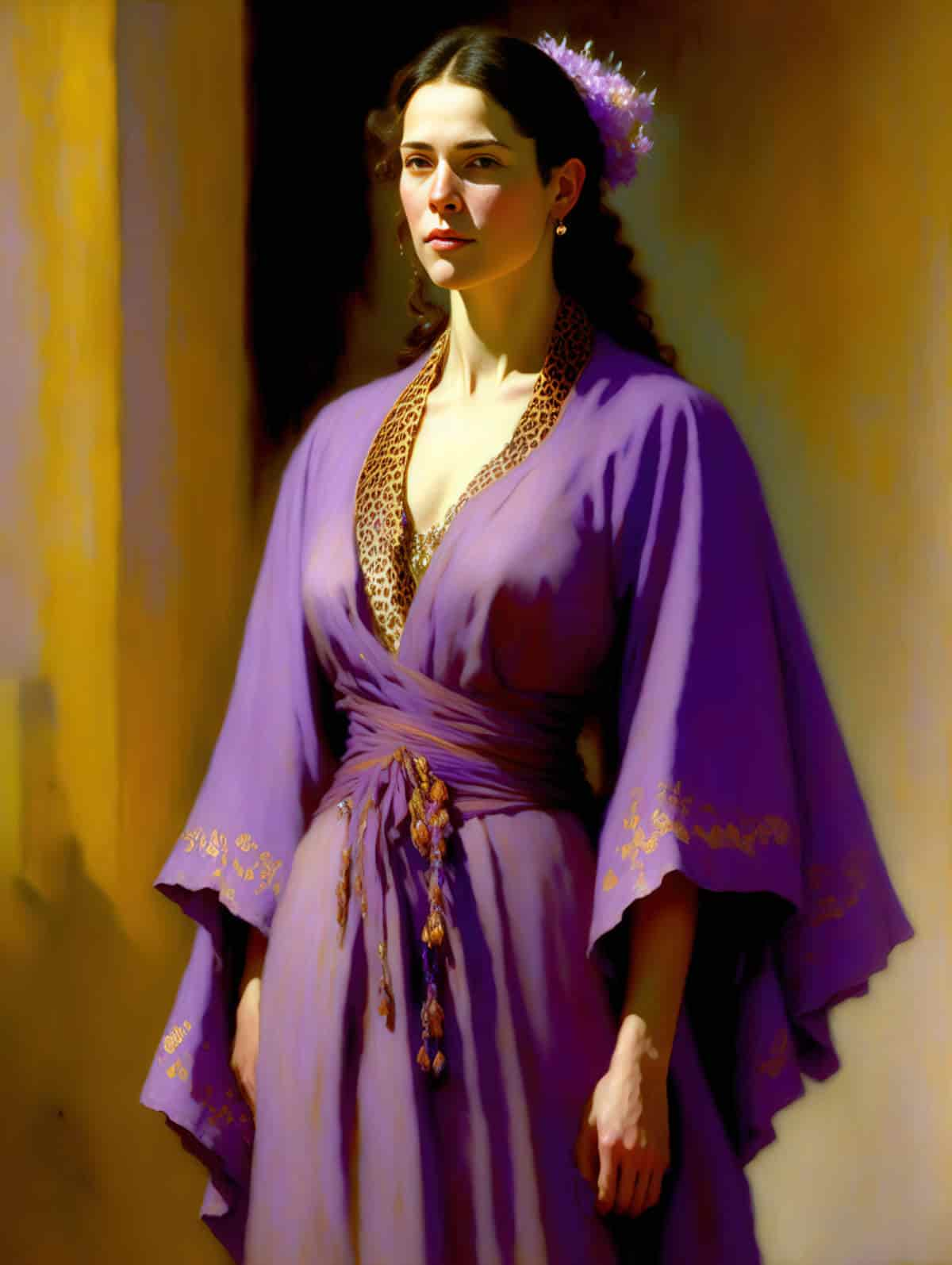
My favourite no context lines from “The Princess” by Lord Tennyson
- I kept the book and had my finger in it
- A man with knobs and wires and vials fired a cannon
- babies rolled about like tumbled fruit in grass
- I would make it death for any male thing but to peep at us
- Daintily she shrieked
- A half-disdain perched on the pouted blossom of her lips
- Grand, epic, homicidal
- then he chewed the thrice-turned cud of wrath, and cooked his spleen
- Proud looked the lips
- I rate your chance almost at naked nothing
- He with a long low sibilation, stared as blank as death in marble; then exclaimed
- She scared him; life! he never saw the like
- She looked as grand as doomsday and as grave
- nail me like a weasel on a grange
nail me like a WEASEL on a GRANGE
- I think no more of deadly lurks therein, than in a clapper clapping in a garth to scare the fowl from the fruit
- I shudder at the sequel
- Woman, if I might sit beside your feet, and glean your scattered sapience.
- daffodilly (an archaic word for daffodil)
- hark the bell for dinner, let us go!
- empurpled
- There sinks the nebulous star we call the Sun
- the beard-blown goat
- I dragged my brains for such a song
- Out I sprang from glow to gloom
- Hist O Hist! (Psst!)
- fleet I was of foot
- secret laughter tickled all my soul
- Huge women blowzed with health, and wind, and rain, and labour
- since my oath was ta’en for public use, I broke the letter of it to keep the sense.
- What fear ye, brawlers?
- I trample on your offers and on you
- bristled grunters in the sludge
- I was drenched with ooze
- fiery-short was Cyril’s counter-scoff

